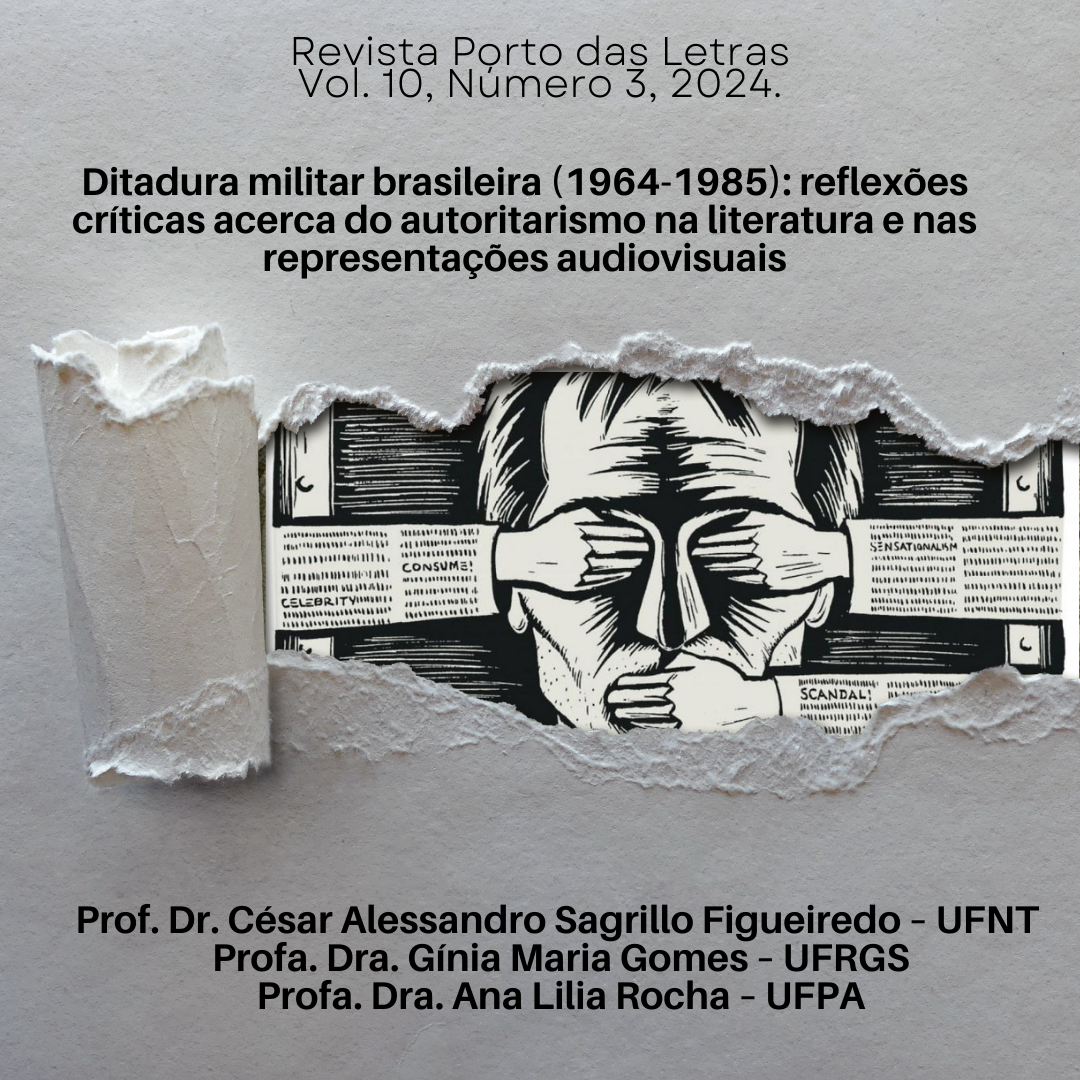NA MESMA CENA, PASSADO E PRESENTE
MEMÓRIA E TRAUMA EM NO FUNDO DO OCEANO, OS ANIMAIS INVISÍVEIS, DE ANITA DEAK
DOI:
https://doi.org/10.20873.24.4017Keywords:
mem´ória, trauma, guerrilha, linguagem literáriaAbstract
No fundo do oceano, os animais invisíveis, by Anita Deak, is a work dedicated to memorialistic reconstruction, through which the narrator-character, Pedro Naves, revisits his life from childhood to early adulthood. Memories emerge in the writing as repositories of significant and often traumatic events, involving persecution, torture, and death. Pedro Naves was one of the members of the armed guerrilla group that settled in the Araguaia River region, on the border of three Amazonian states, in the early 1970s. Historically, the Araguaia guerrilla, as it became known, represented one of the main organized fronts of resistance to the Brazilian military dictatorship (1964-1985), but it met a brutal end in 1974 with the disappearance, at the hands of state agents, of the last remnants of the group. In Deak's novel, the treatment of the narrator's memories (in many ways a survivor) involves an elaborate use of literary language, with evident attention given to rich and multiple associations of meaning.
References
ASSMANN, Aleida. Espaços da recordação: formas e transformações da memória cultural. Tradução de Paulo Soethe. Campinas, SP: Editora da Unicamp, 2011.
BRASIL. Decreto-Lei n° 477, de 26 de fevereiro de 1969. Brasília, 26 de fevereiro de 1969. Disponível em: http://www2.camara.leg.br/legin/fed/declei/1960-1969/decreto-lei-477-26-fevereiro-1969-367006-publicacaooriginal-1-pe.html. Acesso em: 1 mar. 2024.
COETZEE, J. M. The lives of animals. Princeton: Princeton University Press, 1999.
CRUZ, Márcia Maria. Depois de elogiadas estreias, a confirmação do talento de duas escritoras. Estado de Minas [online], 2 abr. 2021. Disponível em: https://www.em.com.br/app/noticia/pensar/2021/04/02/interna_pensar,1252970/depois-de-elogiadas-estreias-a-confirmacao-do-talento-de-duas-escritoras.shtml. Acesso em: 5 mar. 2024.
DEAK, Anita. No fundo do oceano, os animais invisíveis. São Paulo: Reformatório, 2020.
DERRIDA, Jacques. L’écriture et la différence. Paris: Éditions du Seuil, 1967.
ECO, Umberto. Obra aberta. Tradução de Giovanni Cutolo. São Paulo: Perspectiva, 2007.
ECO, Umberto. Seis passeios pelos bosques da ficção. Tradução de Hildegard Feist. 6 reimp. São Paulo: Companhia das Letras, 1994.
GAGNEBIN, Jeanne Marie. Lembrar escrever esquecer. São Paulo: Ed. 34, 2006.
GINZBURG, Jaime. O narrador na literatura brasileira contemporânea. Tintas - Quaderni di letterature iberiche e iberoamericane, n. 2, 2012, p. 199-221. Disponível em: https://riviste.unimi.it/index.php/tintas/article/view/2790. Acesso em: 22 abr. 2024.
HUMPHREY, Robert. Stream of consciousness in the modern novel. Berkeley, CA: University of California Press, 1954.
KRISTEVA, Julia. La révolution du langage poétique. Paris: Éditions du Seuil, 1974.
MORAIS, Taís; SILVA, Eumano. Operação Araguaia: os arquivos secretos da guerrilha. 5. ed. São Paulo: Geração Editorial, 2012.
SELIGMANN-SILVA, Márcio. Apresentação da questão: a literatura do trauma. In: SELIGMANN-SILVA, Márcio (org.). História, memória, literatura: o testemunho na era das catástrofes. Campinas: Editora da Unicamp, 2003. p. 45-59.
Downloads
Published
How to Cite
Issue
Section
License
Os autores concordam com os termos da Declaração de Direito Autoral, que se aplicará a esta submissão caso seja publicada nesta revista (comentários ao editor podem ser incluídos a seguir).

